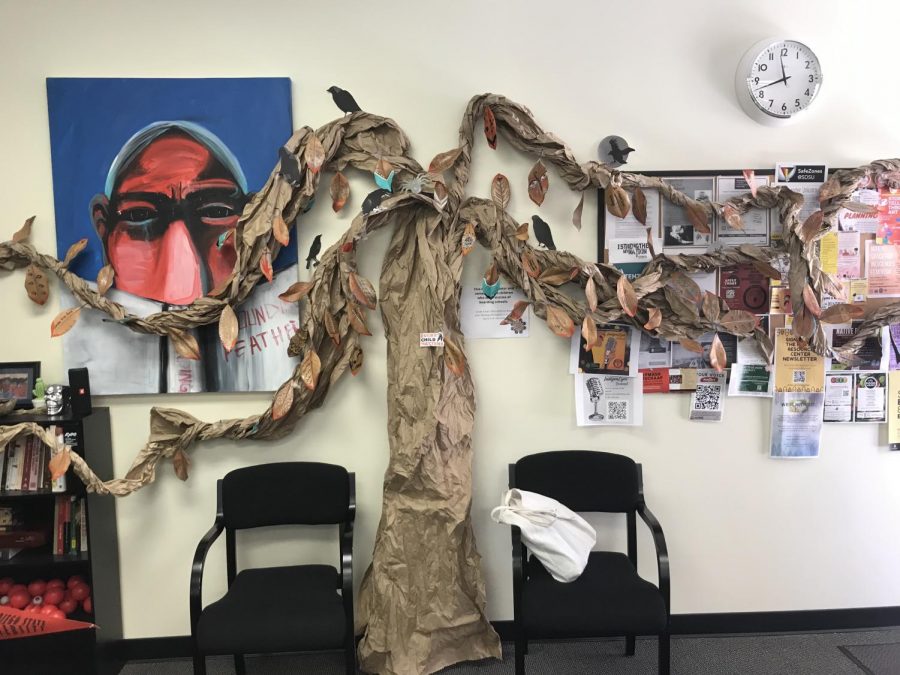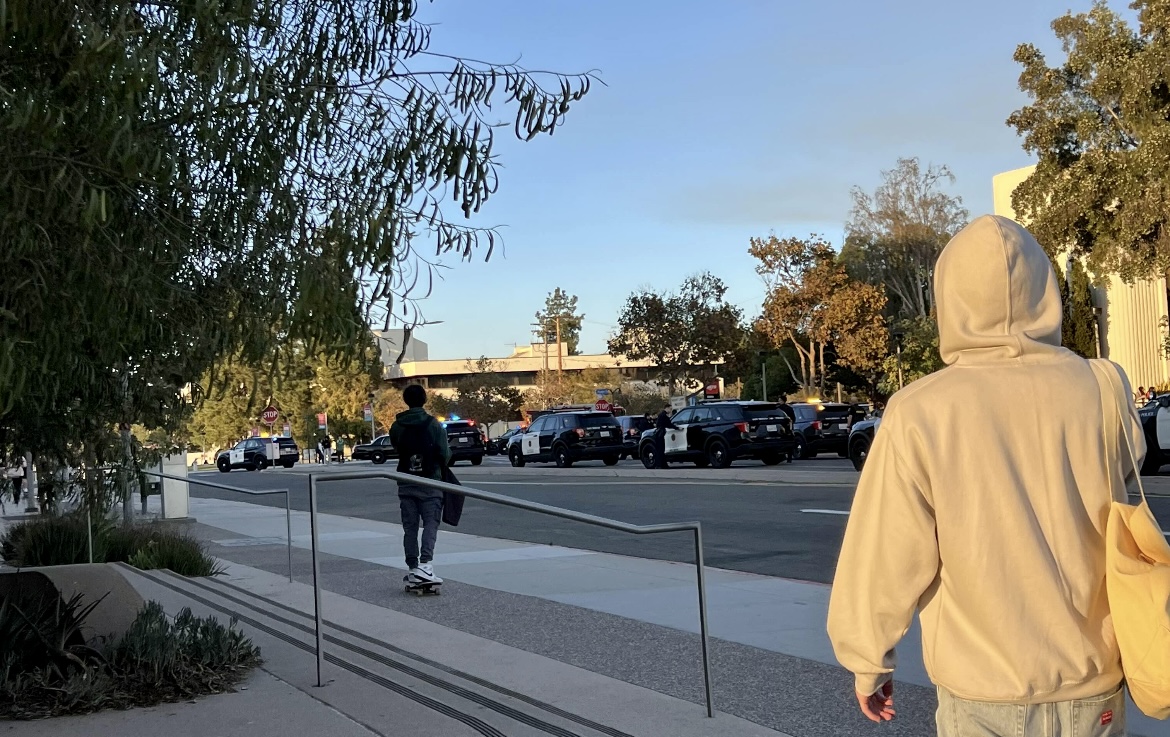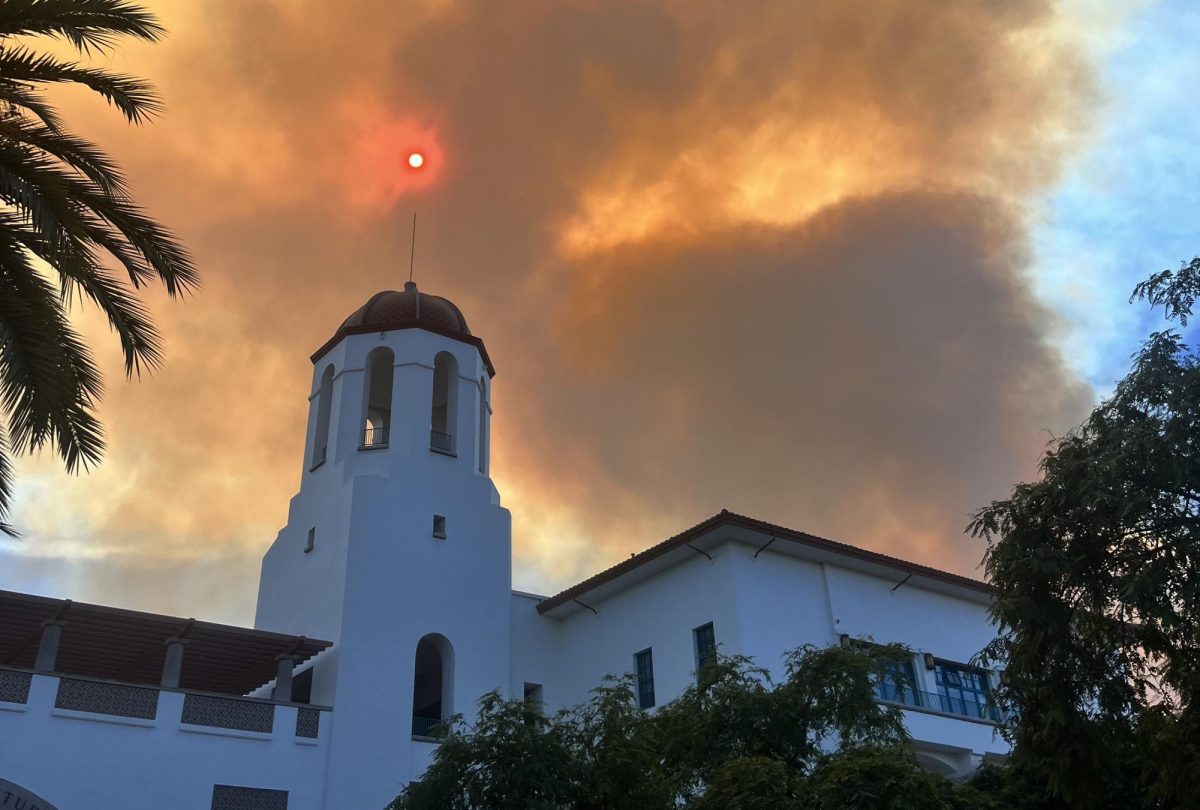The Native Resource Center at San Diego State was founded in 2019 and is located in the Arts and Letters building in room 202, according to their official Instagram. The room is decorated with Indigenous artwork and smells of incense. Swirls of the smoke curl around a paper tree on a back wall, and a blue couch sits in the center of the room.
The NRC aims to provide students with connections so they can build community with organizations like the Native American Student Alliance, according to their official website.
Amanda Flores is the NRC Program coordinator and member of the Oglala Sioux Nation.
“You don’t have to be Native American or Indigenous, we respect all individuals that come in here and allies that wanna learn and just be a part of a community separate from what they’ve ever been part of or if they’ve never even been part of a community,” Flores said.
Kinesiology third year Leah Chavez is the program assistant for the NRC.
Chavez got her start in the NRC through the Elymash Yuuchaap (EY) Program. According to their Instagram, they are “committed to the sovereign identity and academic success of Indigenous students at SDSU.”
Santino Arellano is a fourth-year student at SDSU, studying comparative literature and is a program assistant at the NRC. According to his Linkedin, he’s placing special focus on American Indian studies and literature.
Arellano transferred to SDSU from City College and recalls signing up for emails from the center, given that he put down his identity as Native American on his application when he transferred to SDSU.
“Last summer when I saw that they were hiring, I applied and here I am,” Arellano said.
Part of Arellano’s family are Texan Apache. His paternal grandfather is from Mexico, and has ancestry in the Tarrahumara nation from Chihuahua.
According to an online entry, the Tarrahumara call themselves Raramuri which translates to “light feet.” According to the same entry, they moved there after the arrival of the Spanish and their language is sweet, full of descriptive and poetic language.
“I learn everyday that I work here, just meeting new people and hearing their stories and their thoughts on everything,” Arellano said.
Arellano said the NRC is important because it provides a space for Native students to come hang out and talk to other students about whatever is going on in the world, or on campus.
“Even when I’m not working, I’m in here all the time just because it’s a comfortable place for me to be,” Arellano said.
Out of all the events they’ve put on, Arellano said he enjoyed a recent one where the NRC interviewed Rodrigo Reyes, the director of a movie called “499.” The event was a collaboration between the NRC and the Latinx Resource Center (LRC) on campus.
Arellano explained why a group like the LRC would work together with the NRC on an event.
“For example, the ‘499’ film is about colonization and its effects on the descendants of indigenous people and indigenous people in Latin America, in Mexico specifically,” Arellano said.
The movie follows a conquistador as he navigates through modern day Mexico and hears people’s stories.
“Stories of violence, trauma, abuse, and throughout the entire film he calls everyone ‘Indios’ which is the Spanish word for Indian because everyone he meets, who most people would just see as Latin American, to him are just ‘Indian’ because in his time there was no such thing as Latinx, Chicano, none of that,” Arellano said.
Arellano said the movie touches on necessary topics.
“It gets to the root of everything,” Arellano said. “A majority of people in Latin America are of indigenous descent and show it on their face every single day and it’s something that’s inescapable but at the same time it’s something that those countries try to escape.”
Arellano said there is no such thing as a racial/ethnic checkmark.
“All of us who identify as indigenous definitely can feel that way, because we live in that medium every single day of being not only indigenous but living in the United States, a westernized system, a colonized system and having that be a majority of what we do all day every day is colonized systems and living that western lifestyle because that’s what we’ve been forced to,” Arellano said.
Flores said building community is about respecting and honoring all the different nations that exist.
“All of us are very unique,” Flores said. “We each have our own traditions. It’s [The NRC’s] a safe space to do that in.”
The group tries to honor and embrace their differences.
“Everybody in the world is indigenous to somewhere,” Arellano said. “Just because you’re not indigenous to the place you live in if you’re, you know, European-American living in the United States or otherwise, you’re indigenous to somewhere, your ancestors came from somewhere.”







